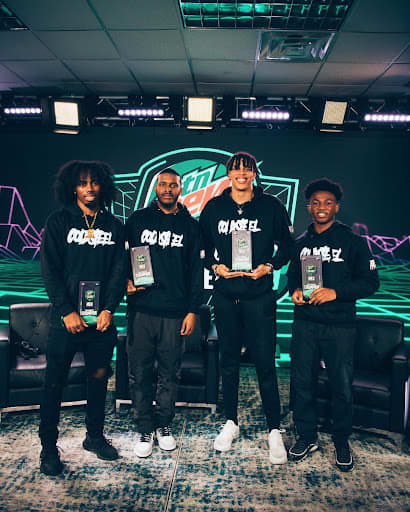What Happens When a College Esports Team Wins?
 Credit: Image Credit: Courtesy of Howard Esports
Credit: Image Credit: Courtesy of Howard Esports- Depending on the tournament, winnings go straight to students or to the program.
- Whitaker said many collegiate esports athletes want the recognition and validation of being official but don’t want the play restrictions that come with it.
- Funding can determine which tournaments Howard Esports can participate in.
- Whitaker predicts that collegiate esports will be majorly televised or streamed in the next coming years.
College student esports athletes compete in tournaments nationwide for thousands of dollars cash for themselves and their schools. As the esports scene booms, collegiate teams seek recognition from their colleges and the public to help fund the programs.
The Call of Duty esports team at Howard University, a historically Black college and University (HBCU) in Washington, D.C., won $80,000 in February, according to The Hilltop, Howard’s independent student paper.
Ahmad Whitaker, a computer information systems major, Howard Esports president, and Rocket League team captain, told BestColleges what happens when an esports team wins and how program funding affects when the teams compete.
What Happens When a Collegiate Esports Team Wins Money
“So, what usually happens when we win: We get the trophy, we get the accolade,” said Whitaker. “This season for the MEAC (Mid-Eastern Athletic Conference), we had the commissioner for the entire MEAC come down and hand everyone their trophies and stuff. Then we got to go out on the floor during the basketball tournament, and they congratulated the teams.”
Where the money goes depends on the tournament, Whitaker said. Some tournaments send money winnings straight to the players. Others, like the team’s recent Fortnite tournament hosted by Cxmmunity, say beforehand that winnings will go to the school’s program.
A recent direct-to-student example was at the 2023 Mountain Dew Real Change tournament in Atlanta, where the university’s Call of Duty team won $80,000 for themselves.
Whitaker said tournaments held in the MEAC, a conference of HBCUs, usually send checks to the players.
“Because when you send it to the school, then it has to go across a lot of checks and balances,” Whitaker said. “Some people have so much scholarship money that the school would just say, ‘Oh, you don’t need this in your refund check, or you don’t need this money.’ “

Recognition and Funding? Yes. NCAA Restrictions? No Thanks.
Whitaker is on the fence about esports and the National Collegiate Athletic Association (NCAA).
Esports is not governed by the NCAA, and if a U.S. District Court decision on Title IX in esports holds up, it may not happen anytime soon.
While being outside the NCAA’s governance is very freeing for teams, it comes at the cost of validity in the public eye and, consequently, funding, Whitaker told BestColleges.
“I think that if it was an arm, it was an official thing, it would make it easier for esports programs to get funding, to get coaches, to get facilities,” Whitaker said. “So, to have it on that official scale, I think it’ll be rewarding, but it’s not the type of reward a gamer wants.”
“I’ve never actually unironically used the word gamer before until right now, which is funny,” he added.
Funding can be a deciding factor for what tournaments Howard Esports can participate in. The forfeit deposit to enter a tournament they’re in now was $500.
“That money needs to come from somewhere,” said Whitaker. “That was almost a deciding factor; thank God we figured it out. We can’t compete in a lot of those tournaments because of the funding part.”
Being recognized as a varsity sport is crucial so they can hire managerial staff for the esports labs and teams instead of full-time students. Whitaker also makes the case that Howard Esports has continually won money for the school through the teams’ dedication to their craft.
“I feel like this is my job; now, do I make money?” Whitaker asked, “Sadly, no.”
“I don’t get anything that’s outside of my game, which is Rocket League,” said Whitaker. “But you know, it’s the passion.”

What’s the Future of College Esports?
When Whitaker surveys the landscape of esports and video games, he sees folks who grew up playing video games becoming adults and getting jobs. These are the people who want to see their colleges compete in games like Fortnite on the news, he said.
Involvement in and support of collegiate esports will grow in the next couple of years, Whitaker predicts. And he doesn’t mind leading the way.
He plans on supporting the team after graduation, he said. And he wants to establish a Howard alumni network for sponsorships, endorsements, and engagements.
“Esports is getting huge; it’s getting huge fast,” said Whitaker. “I personally think that within the next couple of years, esports will start to become something that’s so normal that there will be an overall gaming tournament that’ll be televised on television or on a streaming service,” said Whitaker.
“Because, you know, actually …” he paused, “no one watches TV anymore.”